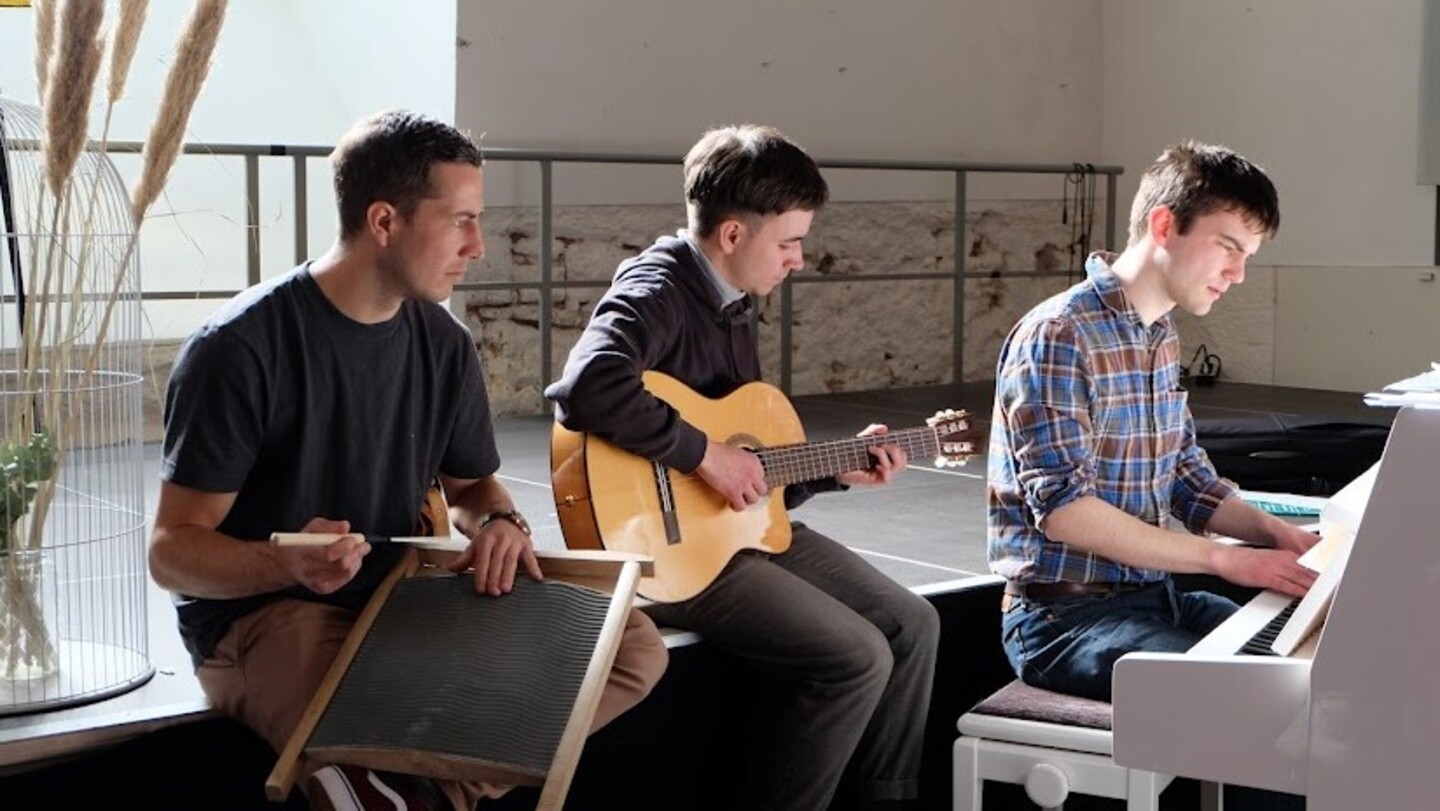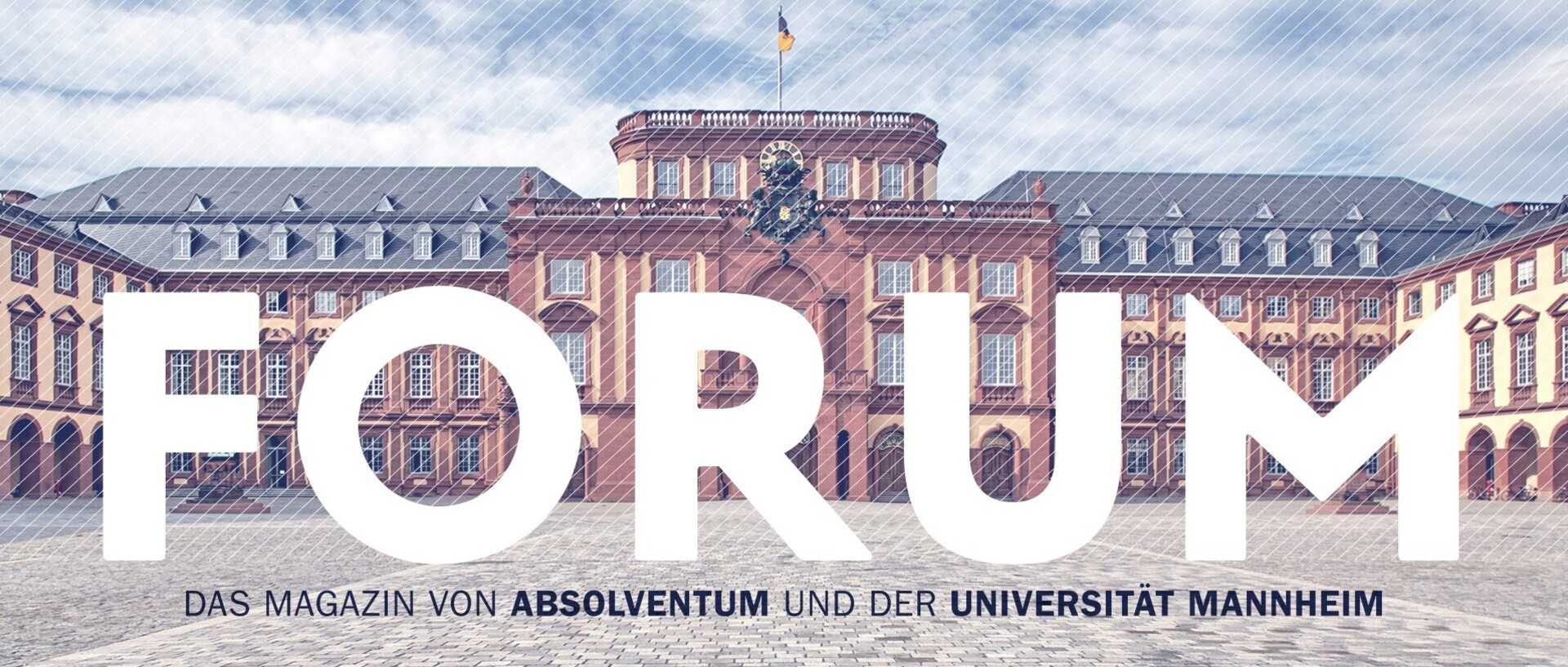The Art of Leading
Each new cohort of the Bronnbach Scholarship recipients traditionally spends the opening weekend at the Bronnbach Monastery near Würzburg. But what actually happens there? Lea Rauh, who is working on her master’s degree in the Mannheim Master in Management, is a scholarship recipient in the current 19th cohort and has recorded her impressions for FORUM.

“What does art mean to me?” That was the question that started off our opening weekend at the Bronnbach Monastery – quite different from the usual questions about studies or jobs. We – 16 young people who normally deal with economics, law, computer science, natural sciences, or technology – will take a close look at art during the next year as part of the 19th cohort of the Bronnbach Scholarship. Through direct dialog with artists, we will learn more about their work and probably also learn a lot about ourselves.
I learned three things during this opening weekend with conductor Anna-Sophie Brüning. First: to guide a group, you first need to know what you want. We had never sung together before, had not known each other until a few hours before we started, but Anna, just by her gestures, was able to get us to start singing at the same time, louder or softer, faster or slower. When we then tried conducting out for ourselves, I realized how important it is to give very clear signals. To do this, you first need to know exactly what you want. You do not see leadership most of the time – but conducting is an exception to that rule.
Leadership was definitely a central theme of this weekend, and my second insight also has to do with leadership: It is possible for things to work without leadership in the classic sense, but only if everyone takes on more responsibility. Anna told us about her experiences with very hierarchical structures at many theaters. The idea of the conductor as a lonely genius is widespread. One example showing that an orchestra without a conductor is possible is the STEGREIF.orchester: This is a collective of 30 international musicians whose concerts are held entirely without sheet music, conductors, and chairs, so as to create more freedom for interaction and movement. The musicians have to prepare and learn the pieces by heart. It is more work and everyone bears responsibility. Anna taught us an art song by Schumann in a very short time, using the “monkey method,” which is when she sings first and we sing after her. It was simple and sounded really good.
My third realization was that an amazing amount is possible. We were all asked to bring an instrument to the weekend, whether we could play it or not. A piano was on site, and we also had guitars, ukuleles, flutes, drums, a saxophone, an accordion, and two instruments that not even Anna was familiar with, a kalimba and a washboard. Despite this unusual mix of instruments, and even though we had just met, we played a waltz by Shostakovich on the first afternoon. In the morning, none of us would have thought that would be possible.
Text: Lea Rauh / October 2022
About the Bronnbach Scholarship:
Inspiration, creativity, intuition, and the ability to change perspective are prerequisites for long-term success in today’s world of business and knowledge. In 2004, the Association of Arts and Culture of the German Economy (Kulturkreis der deutschen Wirtschaft im BDI e. V.) established the Bronnbach Scholarship program to enable future business leaders to develop these skills using artistic methods during their studies. Under the direction of curator Konstantin Adamopoulos, students complete an interactive workshop program and discover new creative approaches to tasks in the professional world. This takes place in direct exchange with artists and creative talents from architecture, visual arts, music, literature, dance, theater, and other areas. The scholarship’s cultural education program operates under the guiding principle of “cultural skills for future business leaders” and sponsors approximately 16 scholarship holders per year. The University of Mannheim has been a partner to the program since 2004, with the Karlsruhe Institute of Technology (KIT) also coming on board in 2017. The Bronnbach Scholarship is currently supported by Daimler, the Karl Schlecht Foundation, the Dieter Schwarz Foundation, and the Peters Beer Foundation.
The 20th cohort of the Bronnbach Scholarship will start their one-year scholarship period in March 2023.
Applications can be submitted up to and including Monday, 16 January 2023.
More information:
https://www.kulturkreis.eu/en/working-circles/cultural-education/bronnbacher-stipendium/
https://www.uni-mannheim.de/en/scholarships/bronnbach-scholarship/
